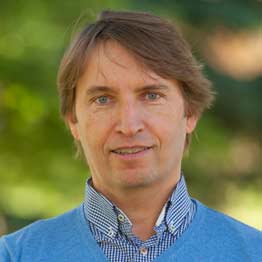02/04/2020
Published in
Today from Extremadura, South
Jesús Miguel Santamaría Ulecia
Full Professor at Chemistry Analytical and director of the Institute of research in Biodiversity and Environment of the University of Navarra.
 Since China declared the appearance of the COVID-19 virus, which later became a pandemic, the world has been experiencing an unprecedented alarm status . Its expansion is intimately linked to our eminently global model way of life. The exchange of goods and people between different countries and continents has its advantages, but it also presents dangers, such as the transmission of diseases.
Since China declared the appearance of the COVID-19 virus, which later became a pandemic, the world has been experiencing an unprecedented alarm status . Its expansion is intimately linked to our eminently global model way of life. The exchange of goods and people between different countries and continents has its advantages, but it also presents dangers, such as the transmission of diseases.
To date, the coronavirus has killed more than 33,000 people worldwide, 6,528 of them in Spain. This is an extremely serious problem that is demanding a great effort on the part of everyone, especially citizens. However, the behavior of human beings when facing different stressful situations is curious: why do we act immediately and forcefully in the face of a problem such as the coronavirus and remain impassive in the face of other situations that are much more serious in terms of mortality?
A clear example is air pollution. According to agreement with the World Health Organization, every year 7 million people die prematurely in the world, which means a total loss of 323,430 years of life. In Spain, the issue number of deaths associated with air pollutants amounts to 27,190.
These deaths, like those caused by the coronavirus, mainly affect the elderly and people with previous pathologies, but they do not occur in an explosive way, but rather in a staggered manner. Fortunately, it is to be hoped that in the coming months the excellent work carried out by scientists will generate a vaccine that will put a stop to the coronavirus; however, a similar political and social response to an extremely serious problem such as poor air quality is lacking. But can we do anything to reduce this silent mortality that passes us by without stirring our consciences?
The answer can be found at status , which began in our country on March 14 with the declaration of a state of alarm and the consequent confinement of citizens to their homes for a period of two weeks, later extended to four weeks. The drastic measures adopted by the government have led, indirectly, to an evident reduction in the main traffic-related pollutants. For example, NO2 concentrations recorded in 14 Spanish cities before (1-14 March) and after (15-28 March) the implementation of the state of alert, have been reduced by 40%.
The greatest reductions have occurred in Spain's tourist cities, which are precisely those that have experienced the greatest decrease in traffic as a result of confinement. However, in less touristic areas or those with high industrial activity, the decrease has been smaller, since the reduction in traffic has been less accentuated.

Concentrations of sulfur dioxide (SO2), emitted especially by heating, have increased slightly (14%). In the case of particles smaller than 10 microns (PM10), the increase observed in the second half of March in some cities is due to the intrusion of dust-laden African air masses, which has offset the decrease in PM10 caused by the traffic restriction.
Regarding ozone (O3), its increase (22%) is a logical consequence of the decrease in traffic. This secondary pollutant is destroyed by nitric oxide (NO). Since its concentration has fallen by 45%, this has led to an increase in O3 in cities.
Regarding the weekly variation of the different air pollutants, Wednesdays are the days with the highest accumulation, suggesting an increase of issue of trips on this day. The so-called "weekend effect", characterized by the sharp drop in pollutants (except ozone) as a consequence of the decrease in traffic, is clearly perceived in both fortnights.
These results show that in just fifteen days, pollution levels have been clearly reduced in the different cities and this should encourage us to reflect on the role that each of us can play to improve our quality of life.
The coronavirus crisis is an excellent experience to make us aware of the power of our actions, which can also be useful to improve environmental health. As citizens, we have in our hands the possibility of achieving transcendental changes to solve the serious problem of atmospheric pollution. The phrase "think globally and act locally" is more valid than ever.
If citizens opt for the use of sustainable means of transport, the benefit in terms of years of life gained will be much greater than that achieved with development of a vaccine against COVID19. Let's quarantine pollution and fight to improve the quality of life in cities, because our elders and our children will thank us for it.
